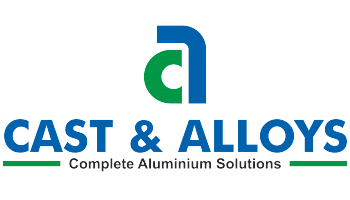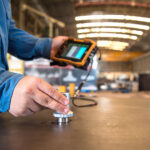Introduction
Aluminium forgings are integral components in modern manufacturing, offering exceptional strength, durability, and versatility. In this comprehensive guide, we delve into the intricacies of aluminium forgings, from their definition and advantages to their manufacturing techniques, quality control standards, and future prospects.
What Are Aluminium Forgings?
Aluminium forgings are metal components produced through a process of shaping and compressing aluminium alloys under high pressure and temperature. This method enhances the material’s mechanical properties, making it ideal for applications requiring strength and lightweight characteristics.
Advantages of Aluminium Forgings
Aluminium forgings offer numerous advantages, including high strength-to-weight ratio, excellent corrosion resistance, enhanced fatigue strength, and superior machinability. These properties make them preferred choices in aerospace, automotive, and marine industries.
Different Types of Aluminium Forgings
Closed Die Forgings
Closed die forgings involve shaping aluminium within enclosed molds, ensuring precise dimensional accuracy and structural integrity. These forgings are common in critical components like aircraft parts and automotive systems.
Open Die Forgings
Open die forgings utilize open molds, allowing for greater flexibility in shape and size. They are often used in heavy machinery, oil and gas equipment, and structural components requiring customized designs.
Seamless Rolled Ring Forgings
Seamless rolled ring forgings are produced by shaping heated aluminium between two rollers, creating seamless rings with superior strength and integrity. They find applications in bearings, gears, and flanges.
Applications of Aluminium Forgings
Aluminium forgings are widely used in aerospace for aircraft structural components, in automotive for engine parts and chassis, in marine for ship fittings, and in general engineering for various machinery components.
How Are Aluminium Forgings Made?
The manufacturing process involves heating aluminium alloys to a specific temperature, followed by forging under controlled pressure using hydraulic or mechanical presses. This process refines the material’s grain structure, enhancing its mechanical properties.
Quality Control in Aluminium Forgings
Quality control measures for aluminium forgings include advanced inspection techniques such as ultrasonic testing, magnetic particle inspection, and visual inspections. Compliance with industry standards ensures the reliability and safety of forgings.
Aluminium Forgings vs Other Materials
Aluminium forgings offer distinct advantages over other materials like steel and titanium, including lower weight, better corrosion resistance, and cost-effectiveness, making them preferred choices in various applications.
Future Trends in Aluminium Forgings
The future of aluminium forgings lies in advanced alloys, innovative manufacturing techniques like additive manufacturing, and increased sustainability practices, catering to evolving industry demands for lighter, stronger, and eco-friendly solutions.
Conclusion: The Versatility of Aluminium Forgings
Aluminium forgings continue to revolutionize industries with their unmatched properties, driving innovation, reliability, and efficiency across diverse applications. Their future remains promising, heralding a new era of technological advancements and sustainable practices.
FAQs About Aluminium Forgings
Are aluminium forgings suitable for high-stress applications?
- Yes, aluminium forgings are engineered to withstand high-stress environments, making them ideal for aerospace and automotive applications.
What are the key factors influencing the quality of aluminium forgings?
- The quality of aluminium forgings is influenced by alloy composition, forging temperature, pressure control during forging, and post-forging heat treatments.
Can aluminium forgings be recycled?
- Yes, aluminium forgings are highly recyclable, contributing to sustainability efforts in manufacturing industries.
Do aluminium forgings require specialized machining processes?
- While aluminium forgings offer good machinability, certain complex shapes may require specialized machining techniques for precision.
What are the environmental benefits of using aluminium forgings?
- Aluminium forgings contribute to reduced fuel consumption in transportation due to their lightweight nature, thereby lowering carbon emissions.
Are there any limitations to using aluminium forgings?
- While aluminium forgings offer numerous advantages, they may not be suitable for applications requiring extremely high temperatures or specific material properties.




